Audio
Women's memoirs on IWD
Hear This by
Vision Australia3 seasons
8 March 2024
28 mins
From the Vision Australia Library, women's memoirs on International Women's Day.

Hear This is a weekly presentation from the Vision Australia Library service for people with blindness and low visibility - including Braille and audio books.
Host Frances Keyland and guests bring you up to date with what’s on offer, including reviews, readings and Reader Recommends.
In this episode: celebrating International Women's Day (March 8), some interesting memoirs written by women.
00:09UU
Take a look. Take a look.
00:24S1
Hello and welcome to Hear This. Today we're celebrating International Women's Day here on the show with some really interesting memoirs written by women who have experienced all sorts of different fields, sometimes not what you would expect. So I do hope you enjoy today's show.
Let's start off today's show with a book by Veronika Gorrie, and it's called Black and Blue, the story of an Aboriginal woman who worked as a police officer and fought for justice both within and beyond the Australian police force. Veronica Gorrie grew up dauntless, full of cheek and a fierce sense of justice after watching her friends and family suffer under a deeply compromised law enforcement system, Gorrie signed up for training to become one of the few rare Aboriginal police officers in Australia. In her ten years in the force, she witnessed appalling institutional racism and sexism and fought past those things to provide courageous and compassionate service to civilians in need, many Aboriginal themselves with a great gift for storytelling and a wicked sense of humour.
Gorrie frankly and movingly explores the impact of racism on her family and her life, the impact of intergenerational trauma resulting from cultural dispossession, and the inevitable difficulties of making her way in the white and male dominated workforce of the police force. Black and blue is a memoir of remarkable fortitude and resilience, told with wish, wisdom and great heart. Let's hear a sample of Black and Blue by Veronica Gorrie. It's narrated by Tamala Shelton.
02:04S2
I grew up in a small Victorian country town with my mother, Heather, my father, John, and my siblings, two brothers and a sister. This town, Morwell, was and still is the coal mine capital of Australia. It is surrounded by power stations that emit pollution 24 hours a day. Set in a rural area and with a quickly expanding population, it used to sit on the main highway to the state's capital. Nowadays, the main highway bypasses Morwell along with my memories. I am an extremely proud Aboriginal woman belonging to the oldest living culture, a culture that has survived invasion, colonisation, genocide and epidemics of smallpox and tuberculosis, which ravaged communities and killed many. My people have survived oppression and dispossession and yet we are still here.
I come from a long line of strong women. I don't remember much about my early childhood and the parts I do remember. I wish I didn't, but I have always known that I am an Aboriginal. We were a poor family and lived from paycheck to paycheck. My dad always had good vehicles though, which he saved for the old Holdens that don't make them like they used to. In those days, for an Aboriginal man to own a vehicle and to have a driver's licence, man you was something. Back in the 1970s. Most vehicles weren't fitted with seatbelts and therefore it wasn't compulsory to wear them. So the family drive was a tight squeeze with four in the back seat. We had the cleanest house and the nicest yard, with roses growing in the front and immaculate lawns.
03:55S1
That was Black and Blue by Veronica Gorrie. Veronica is spelled [spells author's name]. And that book goes for seven hours. And in 2022, Veronica Gorrie on the top prize at the Victorian Premier's Literary Awards for Black and Blue a memoir of Racism and Resilience. Prize judges praised Gorrie for her simple yet captivating style of storytelling in quote, free from pretension and condescension. Through telling her story, Gorrie challenges the reader to ask what they can do in their personal and professional lives to confront racism in all its guises. The judges wrote the work is a demonstrated tale of strength, resilience and humour in settings where none of those attributes would normally exist. And that was reading there from The Guardian in 2022.
The next book is about what Australians often call soccer, but in Britain and elsewhere they just call it football. This is a woman's game by Suzanne Wrack. A Woman's Game explores the history of women's football from the Victorian era, with players in high heeled boots to the present day. It is the story of a rise, fall and rise again from the game's first appearance in England in the late 19th century through the incredible teams which, at their height in 1920, drew 53,000 spectators to Goodison Park to its 50 year ban in the UK and the aftershocks when that ban was lifted. Now, as the women's game is once again on an unstoppable upward trend with internationally renowned players and a record 11.7 million viewers from England's semifinal match against the USA in the 2019 World Cup.
Suzanne Wrack considers what the next chapter of this incredible story might be, from its relationship to the worldwide fight against depression to its ability to inspire change in the wider world. This is both a history of footballers played by women and a manifesto for a better game. Let's hear a sample of A Woman's Game by Suzanne Wrack. It's narrated by Jennifer Ness.
06:14S3
Throughout history, the accessibility and universal appeal of football have made it a powerful tool for fighting back against all forms of oppression. From Didier Drogba and his Ivory Coast teammates calling for an end to the Civil War back home to Bundesliga clubs joining together against anti-immigration rhetoric, and from players taking a knee against racism, to Marcus Rashford challenging the UK government over child food poverty. It is this side of the game that I love reading about, writing about, and exploring how football can be used as a force for good. As a girl growing up in East London in the early 1990s, I could feel the power of the game on every warm day when, with the balcony windows of my family's council flat open. You could determine the score of the day's Arsenal men's match, from the cheers that would emanate from the sofas around the estate. A community would be united in celebration. All the ways in which society divides us briefly overlooked.
Later, it would be in those fleeting moments of matchday euphoria that the self-consciousness I felt in being a woman at a football match would fade into the background. That fade was always brief, a look, a comment, being forced to brush past a tightly packed row of men to get to my seat. Or a sexist chant that I would pretend to join in with. All would quickly remind me that I was different. It is perhaps unsurprising, then, that women's football is where I have found a home.
07:52S1
That was A Woman's Game by Suzanne Wrack. Suzanne is spelt... [spells author's name]. That book goes for six hours. Nearly seven hours, actually, and it sounds like the sort of book that you don't have to be a footy football soccer fan to really appreciate. Sounds like there's a lot of history in there and a lot of, um, maybe motivating anecdotes and inspirational things to make a non-football fan turn into a football fan. Certainly the introduction there was quite captivating. Suzanne Wrack is a British journalist and writer at The Guardian. A Woman's Game: The Rise, Fall and Rise Again of Womens Football was published in 2022, and in 2023 she published another book called Strong Women 15 Modern Icons of Sport. The, A Woman's Game, won the Sunday Times Sports Book Award for new women's sports writing.
The next book is a memoir of teaching, and they seem to be very popular with the library members. This one is called Big Things Grow and it's by Sarah Donnelly. This red dirt, it takes a hold of you. The blue skies, the sunsets, the starry nights. The river country holds onto you. Then you meet the people. Within one week of living in Wilcannia, I had signed up to stay until the end of the year, when Sarah Donnelly left Sydney to take up a teaching post in Wilcannia, a small town two hours east of Broken Hill. She had no idea what to expect. Determined to shrug off what Kenyas rumoured reputation for danger and dysfunction, she threw herself into her new role for fulfilling years later. Sarah is an active member of a rich, complex school community that is transforming the idea of a conventional classroom experience.
Making deep connections with indigenous elders and local families, Sarah has focused her teaching practice on empowering, listening, and creating space for respectful conversations. She takes her students out on country as often as she can, enlisting aunties and uncles in the community to share their wisdom. Everything from hunting for emu eggs and cutting canoes from trees, to working with local artists and learning the history of the river. Big Things Grow is a powerful memoir about community, music and passion, laying bare the beauty and challenges of living in a part of Australia that is often overlooked. Let's hear a sample of Big Things Grow by Sarah Donnelly or Donnelly. It is, um, narrated by Victoria Howell.
10:34S4
The car was packed. I had bought a Ford Territory secondhand and filled it to the brim. I was departing my share house in Paddington earlier than planned, leaving most of the furniture behind for my flatmate. It was a strange feeling to own almost nothing. Again, the idea was to get to the new house, see what it looked like, and after a day at school, head into Broken Hill to buy what I would need. Some cups. Plates. Bowls. Glasses. Cutlery. There were definitely arguments on the street outside the house about what had to be packed and what could be left behind in storage. Afterwards, I thanked dad for his patience. That is, once I had resigned myself to leaving behind my most treasured teaching resources. So we were packed with just enough to get me through six months.
I had signed a contract for two terms. The transfer of duties from my school in Sydney, where the principal had kindly given me leave to embark on my outback. Adventure, is just six months. Mum and dad told themselves, but it was a long way from Sydney's eastern suburbs to Wilcannia and none of us really knew what to expect. Living in a big city. You can be so disconnected from everyone. Neighbors don't talk to each other. And in apartment buildings you can hide away and live your life without ever seeing anyone. Apart from very occasionally bumping into them while putting out the bin. Working in schools. I felt so lucky to be a part of a bigger community. When I received my approval to teach in New South Wales, I had opened my selections to all of Sydney. I wanted to work in a public school and I was happy to try anywhere.
12:11S1
That was Big Things Grow by Sara Donnelly. Sara is [spells author's name]. And that book goes for eight hours. The Sydney Morning Herald called this book a love story to welcome you and its people, and it's a tale of light and hope. And Gaby Stroud, author of teacher, wrote Sara's story shows us the power of a teacher's heart and a teacher's love. These are the stories we need to hear and share. Sara Donnelly was the winner of the 2020 Aria Award for Music Teacher of the year, and the book was published in 2022.
Now to another book that's from the other side of the world. And it's also about education. It is called educated and it's by Tara Westover. Tara Westover grew up preparing for the end of days, watching for the sun to darken, for the moon to drip as if with blood. She spent her summers bottling peaches and her winters rotating emergency supplies, hoping that when the world of men failed, her family would continue on unaffected. She hadn't been registered for a birth certificate. She had no school records because she'd never set foot in a classroom and no medical records because her father didn't believe in doctors or hospitals, according to the state and federal government, she didn't exist.
As she grew older, her father became more radical and her brother more violent. At 16, Tara decided to educate herself. Her struggle for knowledge would take her far from her Idaho mountains, over oceans and across continents, to Harvard and to Cambridge. Only then would she wonder if she'd travelled too far, if there was still a way home. Let's hear a sample of Educated by Tara Westover. It's narrated by Julia Whelan.
14:06S5
I'm standing on the red railway car that sits abandoned next to the barn. The wind soars, whipping my hair across my face and pushing a chill down the open neck of my shirt. The gales are strong this close to the mountain, as if the peak itself is exhaling. Down below the valley is peaceful, undisturbed. Meanwhile, our farm dances. The heavy conifer trees sway slowly, while the sagebrush and thistles quiver, bowing before every puff and pocket of air. Behind me a gentle hill slopes upward and stitches itself to the mountain base. If I look up, I can see the dark form of the Indian princess. The hill is paved with wild wheat if the conifers and sagebrush are soloists. The wheat field is a corps de ballet. Each stem following all the rest in bursts of movement, a million ballerinas bending one after the other as great gales dent their golden heads. The shape of that dent lasts only a moment and is as close as anyone gets to seeing wind. Turning toward our house on the hillside, I see movements of a different kind. Tall shadows stiffly pushing through the currents. My brothers are awake testing the weather. I imagine my mother at the stove, hovering over bran pancakes. I picture my father hunched by the back door, lacing his steel toed boots and threading his calloused hands into welding gloves. On the highway below, the school bus rolls past without stopping. I am only seven, but I understand that it is this fact more than any other, that makes my family different. We don't go to school.
15:58S1
That was Educated by Tara Westover. Tara is spelled [spells author's name]. And that book goes for 12 hours and ten minutes. This book was a huge success. Selected as book of the Year by Amazon, The times, The Sunday Times, The Guardian, New York Times. Lots and lots of books of the year there, the Guardian newspaper wrote. It will make your heart soar. It was published in 2018. To much acclaim, Westover decided to write the book after she confronted her parents about her brother's abuse, and the resulting conflict led her to becoming estranged from some members of her family.
She said, I wrote the book. I wished I could have given to myself when I was losing my family. When I was going through that experience, I became aware of how important stories are in telling us how to live, how we should feel, when we should feel proud, when we should feel ashamed. I was losing my family, and it seemed to me that there was. There were no stories for that. No stories about what to do when loyalty to your family was somehow in conflict with loyalty to yourself and forgiveness. I wanted a story about forgiveness that did not conflate forgiveness with reconciliation. And in an interview with the Irish Times, she said, you can love someone and still choose to say goodbye to them, and you can miss someone every day and still be glad they're not in your life.
And now to Charlotte Ree's book Heartbreak. In this heartfelt memoir of food, love and self-discovery, Charlotte Ree takes us along her journey of learning to cook in the wake of a divorce that left her feeling unsure of who she was and what she wanted, at a time when the whole world was turned upside down. With each meal that she masters a boiled egg, grilled cheese lasagna, ricotta and pesto ravioli in a brown butter and sage sauce. We follow the story of Charlotte's search for love, in friendship, in family, in romance and love in herself, as she begins to heal from the narratives she'd been telling herself for years. Let's hear a sample of Heartbreak by Charlotte Ree. It's narrated by Zoe Curtis.
18:12S6
I have one framed photo of my mum and me from my childhood. We are at wine. Wine. She's sitting on a step and I'm leaning towards her arms by my side. She's bending forward, cupping my cheeks in her hands, kissing my forehead. This photo is the first thing I would save in a fire. Mama. Mom. Mother. Mamacita. Mommy! She smells like opium. Perfume. Smells like home. Her face is cherubic with eyelashes as long as my own. Our voices are so similar that it is hard for people to tell us apart. She rarely brushes her hair and does not wear makeup. She never shaves or plucks. She was always so much more fun, so much more colorful, so much more alive than my friends, mothers and so much younger to.
My mama is joyful, energetic, and generous. She is a strong, independent woman who loves fiercely. Mum breathes you into her when she hugs you. When I see sunflowers and rainbow lorikeets I think of her. She is a gifted storyteller and she makes me laugh out loud. She loathes deadlines and rejects schedules. She loves food, but a cook she is not. She loves hard ginger nut biscuits, Portuguese custard tarts and toasted salad sandwiches. She loves English breakfast tea with a drop of milk. But most of all, my mama adores salt. Mum tells me of growing up on the beach, where she would dive deeply into the salty waves that she told me was where she got her love of salt from. No, not a love and need.
19:58S1
And that was heartbreak by Charlotte Ree. Charlotte is... [spells author's name]. And that book goes for 5.5 hours. And looking online, I'm looking at researching Charlotte Ree, as I'm speaking. And yeah she's a fabulous cook. She's and there's even recipes of hers. There's one here for Charlotte Ree's burnt Basque cheesecake. And I'm getting very hungry looking at the pictures. And there's actually a whole recipe just here. And what on the site I'm looking at and I'm a bit stuck on now I can't move from this is, um, good food show Kokomo. Good food show. Kokomo. So if you go to that website and put in the search box, um, Charlotte RI, uh, you'll come up with some of her delicious looking recipes. Now, I've torn myself away from the recipe of that cheesecake, and I'm here on Charlotte Ree - dot -com, which is her website, charlotteree.com, in which she says this is not a story of revenge heartbreak, nor is it a story of regret. It's a story of losing love, but finding myself. This is my story of the healing power of food.
And like with a lot of food, memoirs or people writing very lovingly about food, there's that generosity in cooking and having people in mind when you're cooking. Charlotte Ree says, ah, the discovery of cooking for others again ignited something in me. It gave meaning, and in some ways it brought me back to life. And that book was published in May 2023.
Just a reminder that all of the books that we've mentioned today are non-fiction, and there's a couple of others, or there's some others here that people may enjoy that I haven't had time to put samples in for. There's the memoir of Demi Moore. From iconic film roles to high profile relationships, Demi Moore has never been far out from the spotlight or the headlines, and that's narrated by Demi Moore as well and goes for about 6.5 hours. So that's called Inside Out by Demi Moore. Demi, that's her first name. [spells name].
And there's also one here that might fascinate people as well. It's Melissa Gilbert and her memoir, Prairie Tale The little House on the Prairie actress traces her complicated journey from buck toothed Laura Ingalls to Hollywood starlet wife and mother. She partied with the Brat Pack, dated heartthrobs like Rob Lowe and bad boys like Billy Idol, and began a self-destructive pattern of addiction and codependence. And that book goes for about 13 hours and is, um, narrated by Nancy Matthewson. So that's called Prairie Tale by Melissa Gilbert.
Or for music memoirs, there is Debbie Harry's book Face It. From gigging in CBGBs to headlining Glastonbury, Glastonbury in 2014, unafraid to speak her mind, she encapsulates a sense of independence, strength and sincerity that has inspired generations. So this is her memoir called Face It, Debbie Harry and it's narrated by Debbie Harry as well.
Or there is Girl in a Band by Kim Gordon. She was the one of the founding members of Sonic Youth. She was a fashion icon and role model for a generation of women, and here she tells her story with biographies, autobiographies, memoirs. You always get a great sense of the history. I find if they're well written in this book, part of it, Gordon, takes us back to the lost New York of the 1980s and 90s, which gave rise to Sonic Youth. Sonic youth paved the way for Nirvana, hole, Smashing Pumpkins and many other acts. And that book is, it says, narrated here by Paul Michael Garcia, so not narrated by Kim Gordon. Which is a shame, but that book goes for seven hours and ten minutes. Girl in a Band by Kim Gordon.
A bit of a shout out to libraries here. One library group in particular, Brimbank Libraries here in Victoria, the Brimbank Writers and Readers Festival, is happening between the 14th of March and the 23rd of March this year. There's going to be author talks, workshops, technology, children and families and a Vision Australia event will be held. So over the ten days you can see writers like Tony Birch, um, Danica McKenzie, John Marsden, Lynn Ewart. But one of the things that we're really excited about here at Vision Australia Library is a session called Read My Way reading with All Our Senses, and this will be held at the Sunshine Library again on Friday the 22nd of March at 2 p.m.
The event goes until 3:30, and you can join Vision Australia for an immersive exploration of different ways of reading with a journey through audio, braille and tactile literacy and learning. And you can explore accessible stories and games and Braille in a fun and interactive way. I'm very excited because there'll be a panel of speakers there representing different parts of Australia, including Sarah Bladon, who is the head librarian here at Vision Australia Library, to answer anybody's questions about the library, how to join. There'll be Felix kits available to have a look at their the kits that we send out to children who are under the ages of eight. There'll be two of our voracious library readers there. Janine and Sheila. There have been members for many years there in book clubs, and they just read voraciously. It's wonderful. And there'll be stellar glory that's hosting the panel and taking your questions.
So if you've ever been curious about Vision Australia Library or what it's like to not be able to read print, how do you get your books? How do you read? How do you play games? If you are low vision or blind, come along and find out. That's Sunshine Library, the 22nd of March. That's Friday at 2 p.m. till 3:30 and it's called Read My Way: reading with all our senses. It's a free event, but you will need to register. So you just need to go to a site called Eventbrite to book. Eventbrite is spelt [spells it], Eventbrite Commons, and you can search for events in that. So if you search for Read My Way, you'll be able to book a seat. If you'd like to contact Brimbank Libraries by email. It is simply library at Brimbank Discovery. That's library at Brimbank. Vigano. Brimbank is spelled breach M for Mary Bain for Nellie K Brimbank. Or if you'd like to contact Sunshine Library as well. With the event is being held, you can call 9249464092494640 to find out about the event or any other events that are happening, but we hope to see you there.
Thank you for joining us here today on Hear This. My name is Frances Keyland. Thank you to everyone who listens, who gives the feedback, provides book recommendations. And if you would like to join the library, the number is 1300 654 656. That's 1300 654 656. Or you can email library at Vision Australia - dot - org. That's library@visionaustralia.org ... Have a lovely week and we'll be back next week with more Hear This.
Continue listening

On Hear This, latest books in the Vision Australia library. This edition, award-winning Oz fiction.
Australian fiction
Hear This by Vision Australia
4/8/2023
•28 mins
Audio

Books from the Vision Australia library - this episode featuring memoirs and family histories.
Family histories
Hear This by Vision Australia
11/8/2023
•27 mins
Audio

This edition: Michael Parkinson remembered and an assortment of latest books from the Vision Australia library.
Vale Michael Parkinson
Hear This by Vision Australia
18/8/2023
•26 mins
Audio

Hear This reviews latest books from Vision Australia library - this edition starting with two Booker Prize aspirants.
Booker Prize hopefuls
Hear This by Vision Australia
25/8/2023
•27 mins
Audio

Hear This interviews Tracey Chevalier, author of Girl with a Pearl Earring.
Girl with a Pearl Earring
Hear This by Vision Australia
8/9/2023
•28 mins
Audio

Hear This samples a variety of audio books from the Vision Australia library.
Top picks from audio books
Hear This by Vision Australia
15/9/2023
•28 mins
Audio

Events and activities at Vision Australia library - and latest picks from its books.
Community engagement
Hear This by Vision Australia
22/9/2023
•27 mins
Audio

This edition of Hear This from the Vision Australia library opens with a discussion of banned books.
Banned books
Hear This by Vision Australia
6/10/2023
•28 mins
Audio

Hear This features latest books and events at the Vision Australia library.
Latest events and books
Hear This by Vision Australia
13/10/2023
•27 mins
Audio
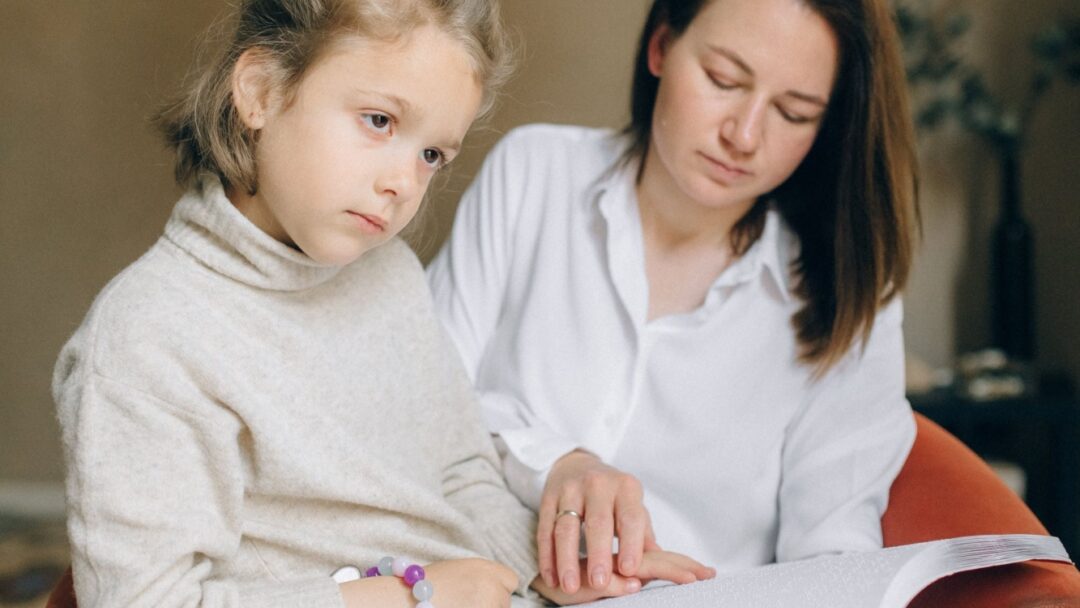
Latest books from the Vision Australia library - including childhood tales and a John Grisham thriller.
Childhood tales and a Grisham thriller
Hear This by Vision Australia
20/10/2023
•28 mins
Audio

Latest books from the Vision Australia library - including a novel by Australian Sam Drummond.
Oz writer Sam Drummond
Hear This by Vision Australia
3/11/2023
•27 mins
Audio

Books from the Vision Australia library - including a memoir by a friend of Anne Frank.
Anne Frank's friend
Hear This by Vision Australia
10/11/2023
•28 mins
Audio

Book reviews and excerpts from Vision Australia library - including a wartime struggle for survival.
Survival in wartime
Hear This by Vision Australia
24 November 2023
•27 mins
Audio

A special seasonal edition reviews Christmas murder stories available from Vision Australia library.
Yuletide Homicide
Hear This by Vision Australia
8 December 2023
•28 mins
Audio

Veteran talking book reader Tony Porter reviews his many voices.
The many voices of Tony Porter
Hear This by Vision Australia
5 January 2024
•27 mins
Audio

What's new in Vision Australia library of Braille and audio books - including new Australian works.
New Australian books
Hear This by Vision Australia
12 January 2024
•28 mins
Audio
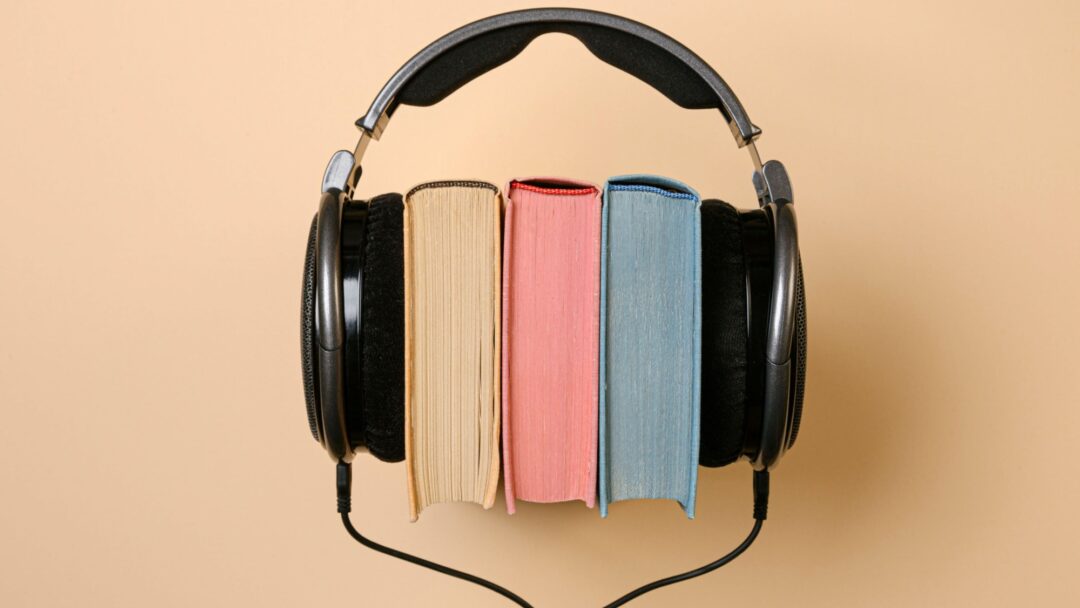
Vision Australia librarian talks of coming events and latest books for people with blindness and low vision.
Coming events and new books
Hear This by Vision Australia
26 January 2024
•28 mins
Audio

Review of books from the Vision Australia library - from a broad international range.
Books from Japan, US, Australia and Sweden
Hear This by Vision Australia
2 February 2024
•27 mins
Audio

New books in the Vision Australia library - from E.L.Doctorow to Alan Bennett.
Reasons Not to Worry, Wild Things... and Alan Bennett
Hear This by Vision Australia
9 February 2024
•28 mins
Audio

Latest events and books from Vision Australia Library, featuring its Community Engagement Co-ordinator.
Vision Library latest with Leeanne
Hear This by Vision Australia
16 February 2024
•28 mins
Audio

Features Jamie Kelly of Vision Australia Library, updating us on its website catalogue. And other new books.
Vision Australia library online, and Jelena Dokic
Hear This by Vision Australia
23 February 2024
•29 mins
Audio

New books in the Vision Australia Library - in this edition, books about paintings.
Books about paintings
Hear This by Vision Australia
1 March 2024
•26 mins
Audio

From the Vision Australia Library, women's memoirs on International Women's Day.
Women's memoirs on IWD
Hear This by Vision Australia
8 March 2024
•28 mins
Audio

Coming events and books at Vision Australia Library for people with blindness or low vision.
Coming events at Vision Library - and a Kerouac classic
Hear This by Vision Australia
15 March 2024
•29 mins
Audio

Latest books from Vision Australia Library - this week, some top Oz and worldwide novels.
Top Oz and world novels
Hear This by Vision Australia
29 March 2024
Audio

Coming events at Vision Australia Library in connection with the Melbourne Writers' Festival.
Melbourne Writers' Festival
Hear This by Vision Australia
5 April 2024
•28 mins
Audio
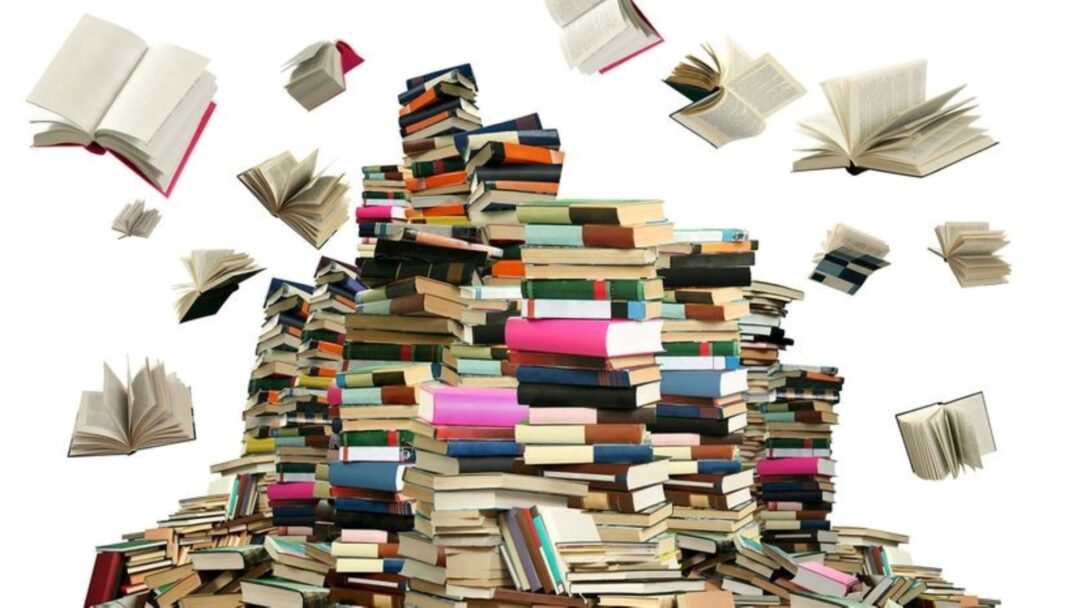
Coming events and new books at the Vision Australia Library for blind and low vision people.
Event update and more new books
Hear This by Vision Australia
12 April 2024
•29 mins
Audio

How printed works are brought to life as audio books in the Vision Australia Library.
Audio book narrators
Hear This by Vision Australia
19 April 2024
•28 mins
Audio

ANZAC Day edition of this series from the Vision Australia library for people with blindness or low vision.
ANZAC sniper
Hear This by Vision Australia
26 April 2024
•28 mins
Audio

From the Vision Australia library: a South African childhood, AI issues and an American First Lady.
Apartheid, AI and Michelle Obama
Hear This by Vision Australia
3 May 2024
•27 mins
Audio

Forthcoming Vision Library events including those connected with the Melbourne Writers' Festival.
Melbourne Writers' Festival and Vision Library events
Hear This by Vision Australia
10 May 2024
•28 mins
Audio

Murder mystery novels available from the Vision Australia library are reviewed and sampled.
Murder mysteries
Hear This by Vision Australia
24 May 2024
•27 mins
Audio

Celebrating National Reconciliation Week with books from Vision Australia Library... plus some user favourites.
Reconciliation Week and Reader Recommends
Hear This by Vision Australia
31 May 2024
•27 mins
Audio
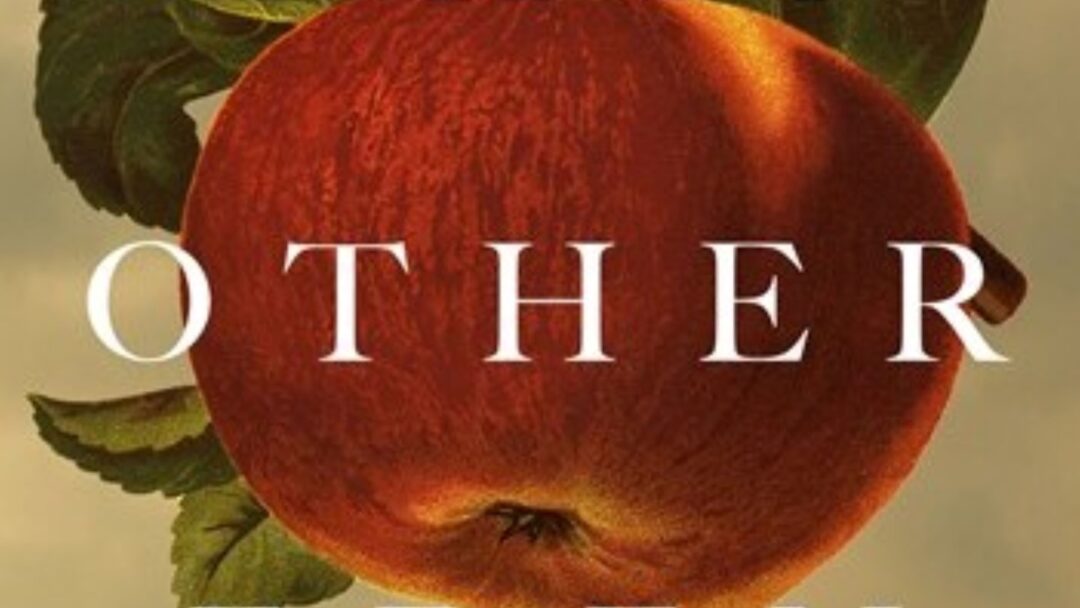
Reader Recommends and crime fiction from the Vision Australia library for blind and low vision people.
This Other Eden... and some other readin'!
Hear This by Vision Australia
7 June 2024
•29 mins
Audio

Vision Library's coming community events and latest books for people with blindness or low vision.
Coming events and latest books
Hear This by Vision Australia
14 June 2024
•29 mins
Audio

Books in Vision Australia library for people with impaired vision - this time on the theme of Darkness.
Darkness
Hear This by Vision Australia
21 June 2024
•29 mins
Audio

New books in Vision Library including the Wikileaks founder's autobiography.
Julian Assange - by the man himself
Hear This by Vision Australia
28 June 2024
•29 mins
Audio

Community events soon to happen at Vision Australia Library for people with blindness and low vision.
Coming events at Vision Australia Library
Hear This by Vision Australia
5 July 2024
•28 mins
Audio

Two well-known authors open the latest look at new publications in the Vision Australia Library.
Hilary Mantel, Bret Easton Ellis and more
Hear This by Vision Australia
19 July 2024
•27 mins
Audio

Vision Library series, this episode features new Australian crime novels written by women.
Australian sisters in crime
Hear This by Vision Australia
26 July 2024
•28 mins
Audio

Latest publications in the Vision Library, starting with a biography of John Farnham.
He's the Voice
Hear This by Vision Australia
2 August 2024
•27 mins
Audio

Latest reviews and readings from publications in the Vision Library for people with print disabilities.
Race, history and Black Ducks
Hear This by Vision Australia
9 August
•28 mins
Audio

Books from Vision Library reviewed include a Julie Andrews memoir, Guardian newspaper picks and more.
Julie remembers and The Guardian recommends
Hear This by Vision Australia
30 August 2024
•27 mins
Audio

An Australian author discusses her works, plus reviews of other books in the Vision Library.
Jane Rawson - author
Hear This by Vision Australia
6 September 2024
•28 mins
Audio

Update on forthcoming events and available publications at the Vision Australia Library.
What's On at Vision Australia Library
Hear This by Vision Australia
13 September 2024
•27 mins
Audio

Accessible Vision Library books reviewed, including murder mysteries and award nominees.
Mysteries and prize contenders
Hear This by Vision Australia
20 September
•27 mins
Audio

Reviews and events at Vision Australia Library to mark World Sight Day, October 10.
World Sight Day and Barbra Streisand
Hear This by Vision Australia
4 October 2024
•28 mins
Audio

What's on in the Vision Library, and the works of Ira Levin and Han Kang.
Library events, Ira Levin and Han Kang
Hear This by Vision Australia
11 October 2024
•28 mins
Audio
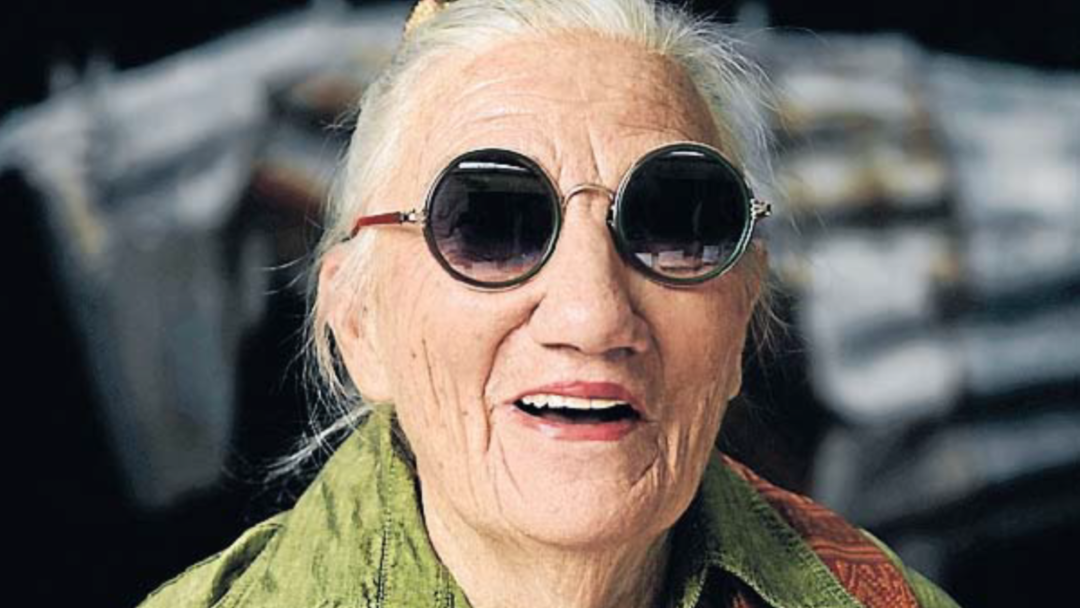
Vision Library publications reviewed - opening with some tributes to writers passed.
Tributes, and more
Hear This by Vision Australia
18 October 2024
•28 mins
Audio

Reviews and readings from Australian, British and US books in the Vision Australia Library.
Tomorrow, Questions, Mistresses and Murder
Hear This by Vision Australia
25 October 2024
•28 mins
Audio

Reviews and readings from books available in the Vision Australia Library.
From Australian thrillers to the US and South Africa
Hear This by Vision Australia
1 November 2024
•28 mins
Audio

A wide range of books in the Vision Australia Library are reviewed and sampled.
Leonard Cohen, ghosts and Broken Hill
Hear This by Vision Australia
8 November 2024
•28 mins
Audio

Events and publications at Vision Australia Library for people with blindness or low vision.
Vision Library: what's in and what's on
Hear This by Vision Australia
15 November 2024
•28 mins
Audio

Interview with an award-winning author about her life and work... plus more publications in the Vision Australia Library.
Jacqueline Bublitz
Hear This by Vision Australia
22 November 2024
•28 mins
Audio
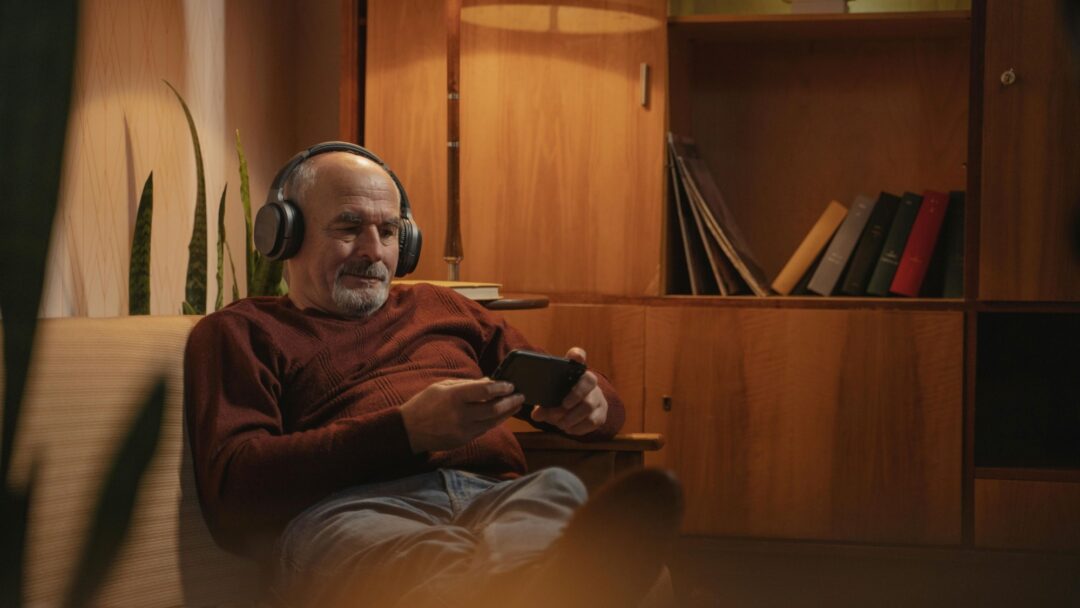
Vision Australia Library for people with vision impairment updates its coming events and latest publications.
Coming soon to the Vision Library
Hear This by Vision Australia
13 December 2024
•28 mins
Audio

Christmas-themed books in the Vision Australia Library for people with vision impairment.
Christmas offerings
Hear This by Vision Australia
20 December 2024
•28 mins
Audio

New books for 2025, fiction and non-fiction - vale Leunig!
Fiction and non-fiction for the New Year
Hear This by Vision Australia
3 January 2025
•27 mins
Audio

Reviews of varied books from the Vision Library - some centring on radio stations or radio plays.
Radio drama
Hear This by Vision Australia
10 January 2025
•29 mins
Audio

What's On at Vision Australia Library - and latest publications accessible to people with blindness and low vision.
Coming events in 2025 - and latest publications
Hear This by Vision Australia
24 January 2025
•28 mins
Audio

Writings on Marianne Faithfull and award-contending works in the Vision Australia Library are reviewed.
Vale Marianne... and award-nominated books
Hear This by Vision Australia
31 January 2025
•28 mins
Audio

Special guest highlights interesting events in libraries around the country... and some new books.
What's new in libraries around Australia
Hear This by Vision Australia
7 February 2025
•27 mins
Audio

Accessible publications chosen for February 14: Library Lovers' Day, Valentines Day and World Radio Day.
Library Lovers' Day
Hear This by Vision Australia
14 February 2025
•29 mins
Audio
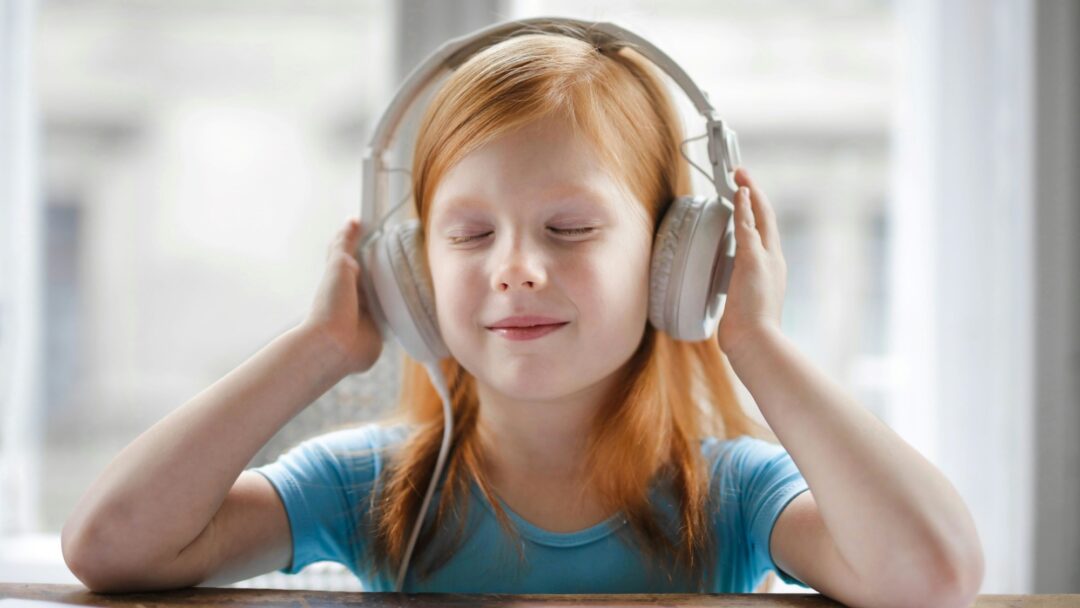
An update on Vision Australia Library's coming events and latest blind-accessible books.
Coming events and new books
Hear This by Vision Australia
25 February 2025
•29 mins
Audio

Reviews of accessible books including a John Steinbeck classic, and news of a forthcoming writers' festival.
Brimbank and Steinbeck
Hear This by Vision Australia
28 February 2025
•29 mins
Audio

Coming courses and other events at Vision Australia Library - and latest accessible books.
Courses, events and latest publications
Hear This by Vision Australia
14 March 2025
•28 mins
Audio

Special with interviews and readings at a writers' festival and writing competition in Melbourne.
Brimbank Writers' and Readers' Festival and Micro-fiction Competition
Hear This by Vision Australia
21 March 2025
•30 mins
Audio

An interview with an Australian woman writer and reviewer, about her favourite female authors.
Women authors with Stella Glorie
Hear This by Vision Australia
28 March 2025
•29 mins
Audio

Reviews and excerpts from accessible works in the Vision Australia Library, starting with a new Australian novel.
Reader recommends a Deal
Hear This by Vision Australia
4 April 2025
•27 mins
Audio

Vision Australia Library brings news of accessible events at the forthcoming Melbourne Writers' Festival.
Melbourne Writers' Festival 2025
Hear This by
11 April 2025
Audio

Vision Australia Library pays tribute to the late Australian author of the Miss Fisher mysteries and more.
Vale Kerry Greenwood
Hear This by Vision Australia
18 April 2025
•28 mins
Audio

ANZAC Day special featuring reviews and short readings from books about the First World War.
Reading about World War 1
Hear This by Vision Australia
25 April 2025
•28 mins
Audio

Reviews and readings of user favourites in Vision Library - including an Antarctic adventure.
Reader recommended
Hear This by Vision Australia
2 May 2025
•28 mins
Audio

What's accessible in the Vision Australia Library - including new books by Kate Grenville and Eric Idle.
Always look on the bright side of... time and place
Hear This by Vision Australia
9 May 2025
•29 mins
Audio

First part of an interview with an Australian author, military historian and war veteran.
Barry Heard's true tales of war (part 1)
Hear This by Vision Australia
16 May 2025
•28 mins
Audio